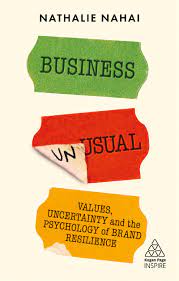On 24thJuly 2018, Perkosmi (Indonesian Cosmetic Association) held a seminar on “Building Your Local Brands: Winning Locally to Grow Globally” and I was delighted to speak on “How to Grow a Brand in Indonesia”. My presentation focused on understanding consumer motivations and habits, and getting beyond explicit behaviours and beliefs, to understand the implicit drivers of behaviour.
However, a lot of the panel discussion focused on issues of naturalness and sustainability. Although many cosmetics brands, especially local ones, look and feel natural in style, this doesn’t extend to their packaging and product formulations beyond the specific requirements of halal certification (for those that have it).
This creates an interesting opportunity, as beneath the surface of the explicit requirements of halal lie the implicit values and beliefs of Muslims. Those beliefs are strongly aligned with naturalness, purity and modesty, including the importance of authenticity and harmony (reflected in local ideas of “inner beauty” and the importance of authenticity and sustaining and supporting relationships with the people and environment around us).
I argued that local brands are strongly placed to take advantage of this need, both locally and globally. Sustainability is not just a Muslim value, but one that increasingly resonates with many people in many countries. It’s also one that is relevant to a current client project and a seminar I am currently preparing for on “sustainability and brand stories”.
Just by chance, I read today about a new beauty brand called “Love Beauty & Planet”launched by Unilever at the end of 2017. While the brand is not 100% natural, its identity is very strongly built around a story of sustainability and authenticity, including being vegan.
The look and feel of the brand strongly reflect this. Of course, Love Beauty & Planet are not the first brand to do this as The Body Shop was launched more than 40 years ago in the UK. However, it’s an interesting take on the value of sustainability and there is no reason why Asian brands can’t do this in locally and globally relevant ways.
To do this successfully, brands should not only focus on the explicit values they convey through product formulation (or halal certification where relevant), but also through the implicit values they convey in the way the brand looks and feels and the consistency of these feelings across all the brand’s touchpoints.
This is a huge opportunity for Asian brands to have a real impact across many categories beyond beauty. If you would like to know more about understanding the implicit and explicit codes of your category, please get in touch.





